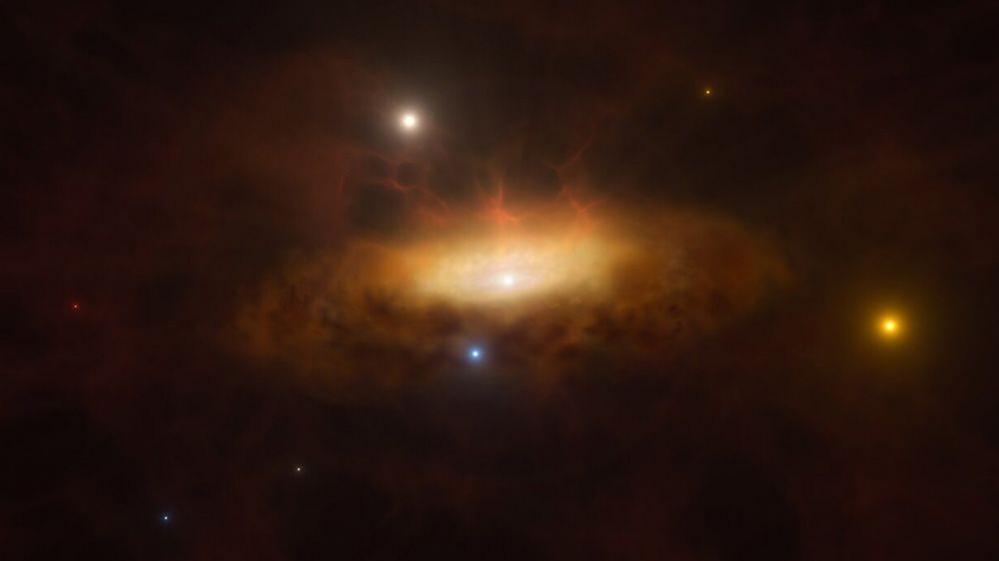Astronomers detect black hole 'waking up'

This artist's impression shows what the black hole waking up could look like
- Published
Astronomers at the European Space Observatory (ESA) have discovered a black hole 'waking up'.
They noticed sudden brightness coming from a very distant galaxy, that has been observed as glowing brighter and brighter since 2019.
Black holes are dying stars with so much gravity that they suck in everything around them. But don't worry - it is a safe 300 million light years away.
This black hole is pretty huge - around one million times bigger than the sun.
- Published8 May
- Published10 January
- Published26 August 2022
How are black holes formed?
This is the black hole at the centre of the galaxy M87
Every star in the sky has a life cycle - even our own Sun. When stars die, there are a few different things that can happen.
An average-sized star turns into a red giant, then a planetary nebula, then a white dwarf star, and after millions of years of light, it becomes a black dwarf. This is what will happen to our Sun, but not for millions and millions of years.
It's usually only really big stars that eventually become black holes. First, as they begin to burn out they become a red supergiant, then an incredible explosion happens called a supernova.
The supernova sends material from the star all across space. It usually turns into a neutron star, which is a very dense star. If it's a really big star - and a really big supernova - you'll get a black hole.
What happens inside a black hole?
The Big Question: What's inside a black hole?
The pull of gravity inside a black hole is so strong that even light can't escape it. This is where the name 'black hole' comes from - because that's what they look like to us in space.
Scientists have theorised what a black hole actually looks like - and a breakthrough was made in 2019 when the first 'picture' of one was taken.
We don't know exactly what happens inside - however Nasa did create a simulation of what it could look like.
All we know is that black holes suck in matter, including light, and that time actually slows down around the black hole, because of the strong gravity.
Keep up with the latest space news
- Published6 June
- Published13 June
- Published7 June
